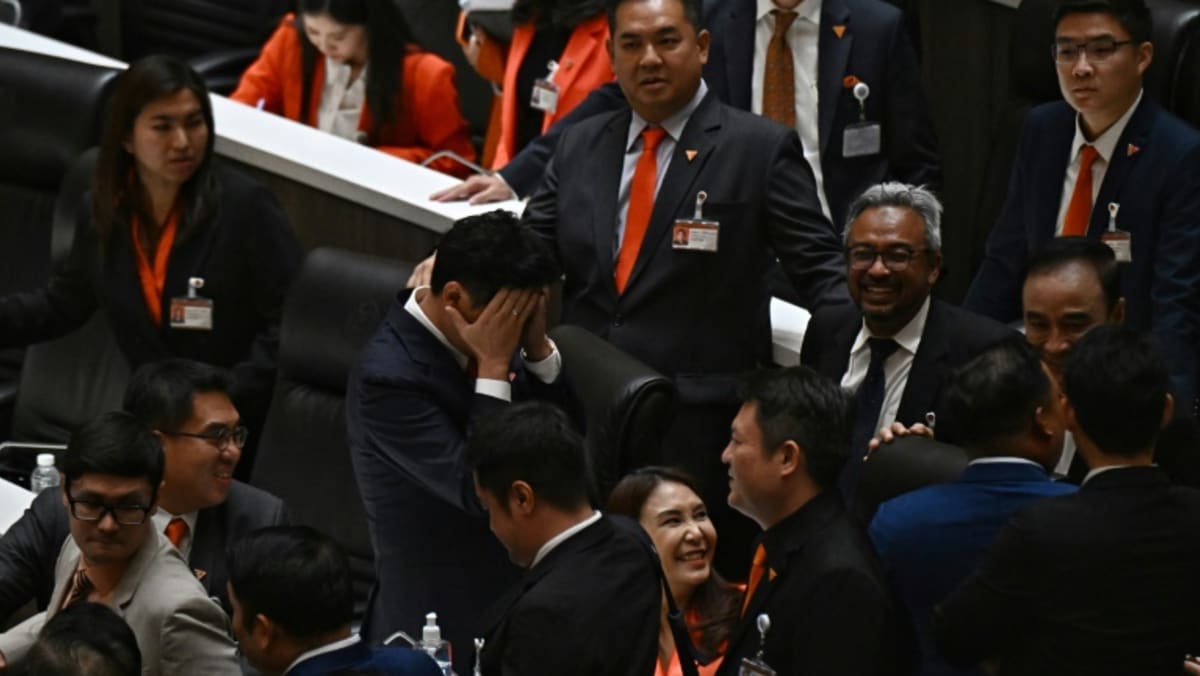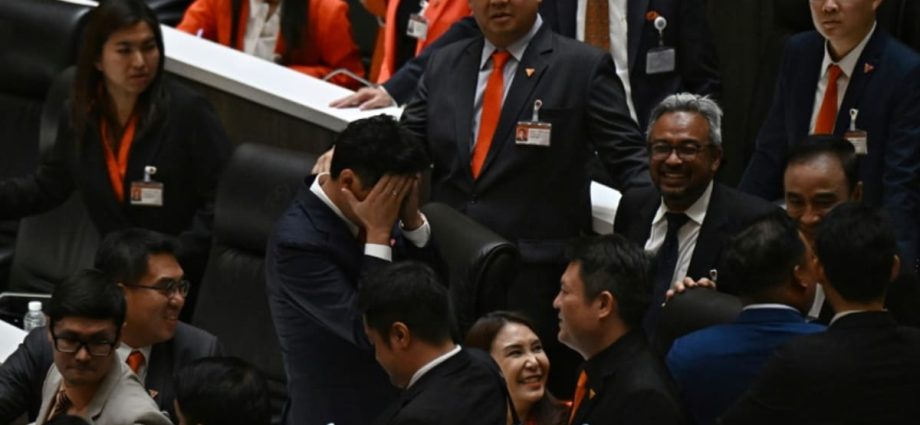
Thitinan said he expected Pheu Thai – a party that held office before the 2014 military coup but is now in an uneasy alliance with MFP – to field prime ministerial candidates of their own.
If a Pheu Thai candidate won with the backing of conservative lawmakers, they may yet form a government that excluded Pita’s party altogether, he added.
“The conservative forces see Pita and MFP as a threat to be put down,” he said. “I would not be surprised, along these lines, that they would do the same thing to prevent MFP from even being in the government.”
Pheu Thai secretary-general Prasert Jantararuangtong told reporters that the party would meet with MFP on Friday evening to discuss the strategy for the next ballot.
“ABUSE OF POWER”
Pita rode a wave of support that saw voters emphatically reject almost a decade of army-backed rule under Prayut Chan-o-cha, who took power in the 2014 coup.
But the MFP’s reformist agenda has drawn strident objections from conservative supporters of the country’s establishment, particularly plans to shake up the outsized economic role of powerful business monopolies.
On Wednesday, the electoral commission recommended Pita’s suspension from parliament over allegations he broke campaign rules – a move the MFP branded as an “abuse of power”.
The recommendation followed a probe into Pita’s ownership of shares in a media company, prohibited under Thai law.
The station has not broadcast since 2007, and Pita has said the shares were inherited from his father.
MFP was the only party that campaigned on tackling the thorny issue of the royal defamation laws, but that too landed it in trouble.
The Constitutional Court accepted a case alleging that the promise amounts to attempting to “overthrow” the constitutional monarchy.
The party has two weeks to present their defence.

